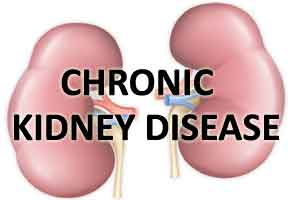- Home
- Editorial
- News
- Practice Guidelines
- Anesthesiology Guidelines
- Cancer Guidelines
- Cardiac Sciences Guidelines
- Critical Care Guidelines
- Dentistry Guidelines
- Dermatology Guidelines
- Diabetes and Endo Guidelines
- Diagnostics Guidelines
- ENT Guidelines
- Featured Practice Guidelines
- Gastroenterology Guidelines
- Geriatrics Guidelines
- Medicine Guidelines
- Nephrology Guidelines
- Neurosciences Guidelines
- Obs and Gynae Guidelines
- Ophthalmology Guidelines
- Orthopaedics Guidelines
- Paediatrics Guidelines
- Psychiatry Guidelines
- Pulmonology Guidelines
- Radiology Guidelines
- Surgery Guidelines
- Urology Guidelines
New findings may help protect the kidney health of individuals with obesity

A new study provides insights on the mechanisms behind the development of kidney damage due to obesity. The findings, which appear in an upcoming issue of the Journal of the American Society of Nephrology (JASN), point to a potential target for protecting the kidney health of individuals with obesity.
Obesity can cause structural and functional changes in the kidneys, which may help explain why individuals with obesity face an elevated risk of chronic kidney disease and its progression to kidney failure. Although multiple metabolic factors have been proposed to contribute to obesity-induced kidney problems, the underlying mechanisms are not completely understood.
To investigate, a team led by Joseph Tam, DMD, PhD and PhD student Shiran Udi, MSc (Institute for Drug Research, The Hebrew University of Jerusalem, in Israel) examined the kidney cells that are responsible for the reabsorption of nutrients, while allowing other substances of no nutritional value to be excreted in the urine. These renal proximal tubular cells (RPTCs) are especially sensitive to the accumulation of fat, or lipids, an effect called lipotoxicity. The researchers examined the potential role of endocannabinoids, lipid molecules that act on a cellular receptor (CB1R), in RPTC lipotoxicity.
Mice that lacked expression of the receptor in RPTCs experienced significantly less obesity-induced lipid accumulation in the kidney as well as less kidney dysfunction, injury, inflammation, and scarring. Moreover, the study revealed the molecular signaling pathway involved in mediating the CB1R-induced kidney injury and lipotoxicity in RPTCs. Specifically, these deleterious effects associated with decreased activation of liver kinase B1 and the energy sensor AMP-activated protein kinase, as well as reduced fatty acid β-oxidation.
"This work provides a novel approach to slow the development of renal injury through chronic blockade of peripheral CB1Rs," said Dr. Tam. "And, it also supports strategies aimed at reducing the activity of the endocannabinoid system, specifically in the kidney, to attenuate the development of RPTC dysfunction in obesity."

Disclaimer: This site is primarily intended for healthcare professionals. Any content/information on this website does not replace the advice of medical and/or health professionals and should not be construed as medical/diagnostic advice/endorsement or prescription. Use of this site is subject to our terms of use, privacy policy, advertisement policy. © 2020 Minerva Medical Treatment Pvt Ltd